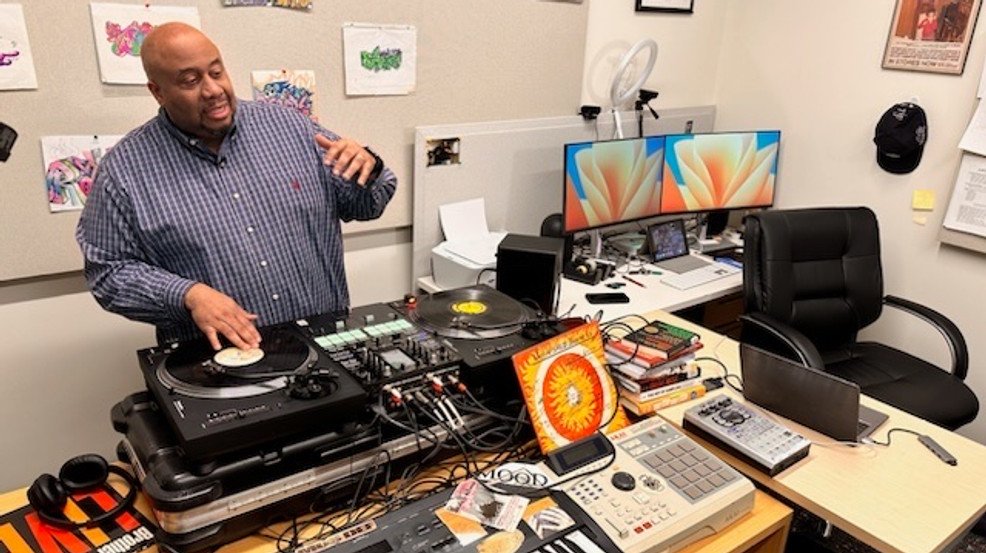COLUMBUS, Ohio (WSYX) — Dr. Jason Rawls is an Assistant Professor of Hip Hop at The Ohio State University.
It’s a title he never thought could exist.
He found hip-hop growing up on the south side of Columbus. It was more than just the sound that spoke to him. In hip-hop, young Jason found his passion and his future.
“I fell in love with this culture,” said Dr. Jason Rawls. “To this day, I’m still in love with this culture.”
Now that culture is his curriculum, for “The Art and Politics of Hip Hop.”
“It really comes from this combination of my two passions, and that is hip-hop culture and then of course education and teaching,” said Rawls.
Before Dr. Rawls became an educator of hip hop, he was an educator in Columbus City Schools. All the while, he also evolved his skills as a practitioner of hip hop, as a rapper and DJ, releasing and producing dozens of albums. Ultimately, he realized hip hop could be a powerful way to connect with students.
“I realized that I could use that to build strong relationships with them,” said Rawls. “Once I realized that, I knew from there that I could combine these two and make something new and bring that to the masses and I think that’s what’s so exciting. That’s what we get excited about because we get to bring this to everyone who may not have experienced it.”
His students at Ohio State represent a wide variety of majors, filling a general education requirement and focusing on the four elements of hip hop.
“B-boying, which is the breakdancing, DJing, MC, and graffiti – those are the four main elements of hip-hop and we immerse the students in the culture of hip-hop,” said Rawls.
During the spring semester, ABC6 experienced classwork with Rawls’ students, as they stepped away from their desks to learn the art of b-boying, or breakdancing. They gathered in a circle to observe, learn, and try some moves of their own.
“Hip-hop can’t be defined really,” said Lawrence Hollenveck, an anthropology major and student in Rawls’ course. “You can collectively say there are things that it is made of or that it has been, but it can’t be constricted or put into a box.”
Hip-hop represents a growing curriculum at the collegiate level across the country.
“Looking at something, analyzing it, learning it and then creating something from it and that’s what hip-hop is,” said Rawls.
He says he definitely experienced pushback when initially creating this course. Critics denounce the sexuality and misogyny of hip hop. Rawls doesn’t back away from the criticism, turning those elements into discussion points in the classroom, examining the reflection in society.
“I think there’s pushback in anything that’s different – anything that requires you to see change, and the value of change,” said Rawls. “I see this as congruent to hip hop in the early days, when everybody said it was just a fad. You know, I’m hearing similar things about hip hop in education.”
It may also be reflected in the evolution of hip-hop and how it’s still changing.
“Hip-hop continues to evolve and that’s a good thing because the hip-hop I grew up on is not the same hip-hop that our kids are growing up on and that’s ok,” said Rawls.
Rawls plans to expand and evolve the course while continuing to perform, record, and produce. He’s fully immersed in the joy of this dynamic expression, as the professor of hip hop.
“When I came here and I got my business card and it said, ‘assistant professor of hip-hop’, it was like – is that even possible,” marvels Rawls. “Young Jason would’ve never thought that I could be at the Ohio State University teaching my passion of hip-hop.”
It might not be listed in the curriculum, but the goal of this course is clear.
“There’s a path for you and I think that’s the most important thing,” said Rawls. “We’ve got to give young people hope and that’s what this does and that’s our goal.”


